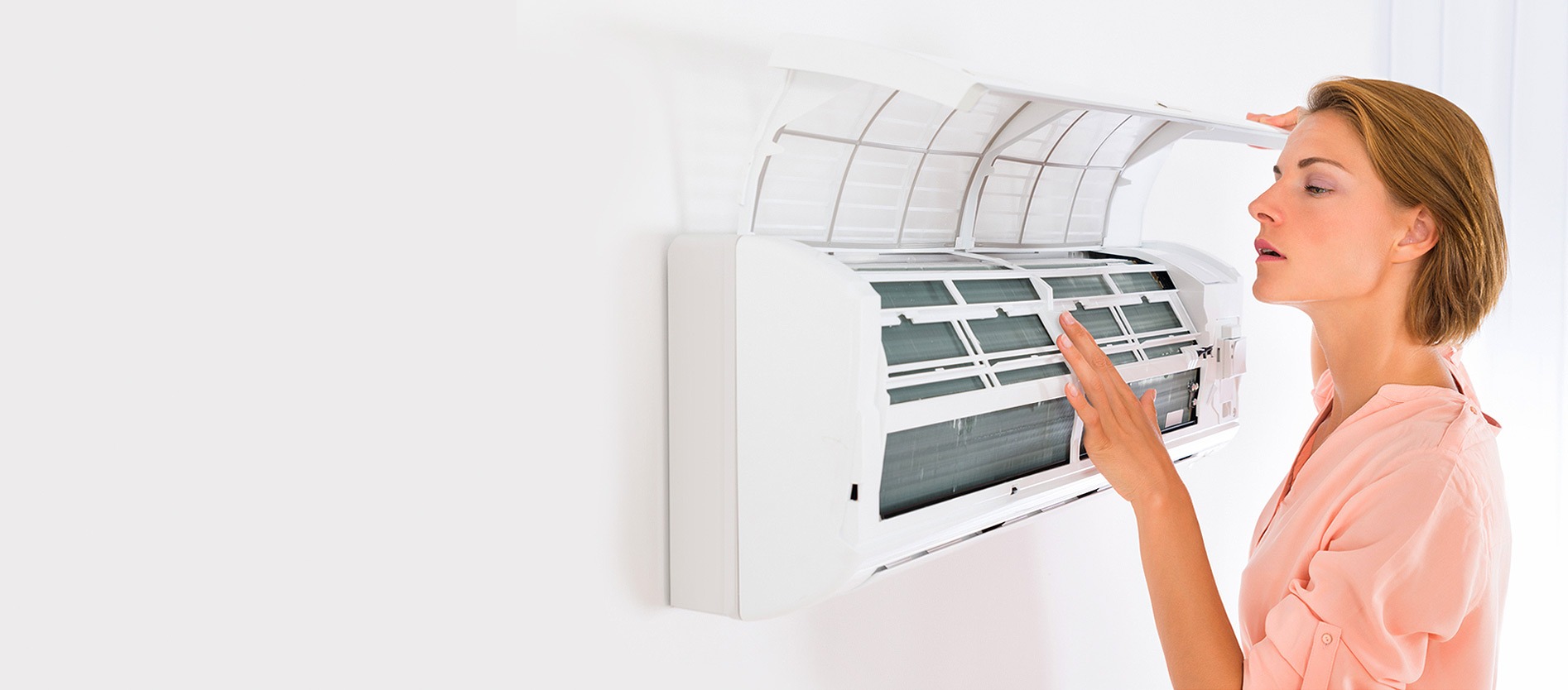Exactly How Air Conditioning Improves Convenience and Air Top Quality in Your Home
The integration of air conditioning systems in domestic setups plays an important duty in boosting both comfort and air high quality. The effects of air conditioning expand past simple convenience; they touch on power performance and total health and wellness.
Benefits of Air Conditioning
Air conditioning offers various advantages that extend beyond simple convenience, significantly improving interior settings. Air conditioning systems filter and flow indoor air, eliminating dust, irritants, and contaminants, thereby contributing to a healthier living room.
Additionally, cooling plays a vital duty in moisture control. Too much humidity can bring about mold development and structural damages, while a/c systems assist keep optimal moisture levels. This not only secures home however also boosts comfort by reducing the clamminess often connected with high moisture.
Energy effectiveness is one more vital advantage. Modern a/c units are created to run extra efficiently than older designs, reducing power usage and reducing utility costs. Programmable thermostats enable customers to optimize cooling down routines, making certain that power is used judiciously.
Finally, a/c adds to raised efficiency. Air Conditioning Brisbane. In work environments, a regulated climate can enhance focus and performance, highlighting the value of a/c in both property and commercial setups
How A/c Enhances Convenience
Boosted convenience in indoor atmospheres is just one of one of the most considerable advantages provided by a/c systems. These systems successfully manage interior temperature levels, ensuring a regularly enjoyable ambience despite exterior weather. By maintaining a secure temperature level, a/c allows passengers to engage in everyday tasks without the pain frequently brought on by too much warmth or humidity.
Moreover, a/c systems add to boosted rest high quality. A cooler setting contributes to far better rest, as it assists reduced the body's core temperature level, signaling that it is time to rest. This is specifically important throughout the warmer months when heats can interfere with sleep patterns.
Furthermore, modern cooling systems often come furnished with programmable thermostats, making it possible for customers to personalize their comfort degrees according to individual choices and timetables - Air Conditioning Brisbane. This versatility not just enhances convenience but likewise promotes power efficiency, as systems can be set to run just when required

Enhancing Indoor Air Quality
A substantial benefit of air conditioning systems is their capacity to enhance interior air quality. By flowing and filtering air, these systems eliminate air-borne pollutants, irritants, and contaminants, leading to a much healthier living setting. High-efficiency particle air (HEPA) filters, typically used in contemporary a/c units, effectively capture dust, pollen, mold spores, and pet dog dander, thus decreasing the visibility of toxic irritants that can intensify respiratory issues and allergies.
Additionally, air conditioning systems can help alleviate the effects you could look here of outside pollution. By preserving a closed indoor atmosphere, they restrict the increase of outside irritants and particulate matter. This is specifically useful for people with asthma or various other respiratory problems, as enhanced air top quality can contribute to much better wellness results.
In addition, some advanced air conditioning versions come equipped with ultraviolet (UV) light modern technology, which even more purifies the air by counteracting germs and infections. Routine maintenance of these systems, including filter substitute and cleaning, is important to make sure optimal efficiency and air quality. On the whole, the duty of a/c in improving interior air quality can not be overemphasized, making it find more an invaluable element of contemporary home comfort.
Handling Moisture Degrees
Efficient monitoring of humidity degrees is crucial for preserving a comfy and healthy and balanced indoor environment. High humidity can result in discomfort, promoting a feeling of dampness and making it tough for the body to control its temperature level. This condition can also produce an ideal reproduction ground for mold and mildew, allergen, and various other allergens, ultimately influencing indoor air top quality.
A/c systems play a substantial duty in managing moisture. By cooling down the air, they likewise evaporate it, removing excess wetness as the air passes over cold evaporator coils. This procedure not just boosts convenience however likewise lowers the risks connected with high moisture. Preferably, interior humidity levels should be preserved between 30% and 50% for optimum comfort and health and wellness.
Along with air conditioning, using dehumidifiers can even more help in handling moisture degrees, particularly in locations prone to excess moisture, such as cellars or bathrooms. Normal maintenance of a/c systems, including cleaning and changing filters, can boost their performance in wetness control. By successfully handling humidity, home owners can produce a more pleasant living space while minimizing health and wellness risks related to poor interior air top quality.
Energy Effectiveness and Sustainability
Cooling systems' energy efficiency is progressively crucial in today's ecologically conscious society. As families look for to decrease their carbon footprints, the demand for energy-efficient air conditioning units has actually risen. These systems are created to use much less power while keeping optimal indoor convenience, consequently site web lowering energy bills and lessening ecological impact.
Technical developments have actually resulted in the advancement of high-efficiency models that make use of ecologically friendly refrigerants and progressed heat exchange procedures - Air Conditioning Brisbane. Equipments with greater Seasonal Power Performance Ratios (SEER) and Power Effectiveness Ratios (EER) not only do better but likewise add to a sustainable future by decreasing greenhouse gas emissions
Furthermore, integrating wise technology right into air conditioning systems permits more exact temperature level control and energy monitoring. Property owners can change settings remotely, allowing them to maximize energy use and minimize waste.
Furthermore, routine maintenance and proper installment are crucial for guaranteeing that cooling units run at peak efficiency. This commitment to power performance not only improves the longevity of the system however likewise lines up with more comprehensive sustainability objectives, eventually profiting both the individual home owner and the environment.
Final Thought
